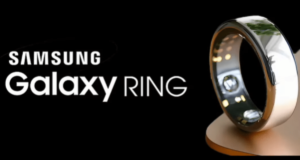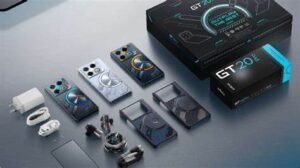Apple’s Ambitious iPhone 16 Launch Plans
Apple is poised to make a substantial impact in the smartphone market with its upcoming iPhone 16 launch, targeting the shipment of 90 million units. This ambitious goal reflects a 10% increase compared to the previous year’s figures, underscoring Apple’s confidence in its product and market strategy. The strategic importance of this target cannot be overstated, as it aligns with the company’s overarching objective to solidify its dominance in the tech industry while meeting escalating consumer demand.
The decision to boost shipment numbers is likely influenced by several factors, including anticipated technological advancements in the iPhone 16 that are expected to entice both new customers and existing users looking to upgrade. Features such as enhanced processing power, superior camera capabilities, and faster charging are poised to set the iPhone 16 apart from its predecessors and competitors. Additionally, Apple’s robust marketing campaigns and loyal customer base could further drive strong market reception.
Industry analysts have expressed optimism about Apple’s ambitious target, citing the company’s historical performance and market adaptability. For instance, Apple has consistently demonstrated its capacity to navigate supply chain challenges and meet high consumer expectations. Historical shipment data reveals a pattern of steady growth, with notable spikes following the release of significantly upgraded models. This trend suggests that the iPhone 16, with its anticipated enhancements, is well-positioned to achieve similar success.
Moreover, achieving the 90 million unit shipment goal will likely bolster Apple’s financial performance, contributing to increased revenue and market share. This aligns with Apple’s broader business goals of sustaining growth and innovation in a highly competitive market. The company’s strategic focus on expanding its product ecosystem and enhancing user experience through seamless integration of hardware and software further supports this objective.
In conclusion, Apple’s plan to ship 90 million units of the iPhone 16 represents a calculated move to leverage its technological advancements and market strengths. By aiming high, Apple not only seeks to satisfy consumer demand but also to reaffirm its leading position in the global tech industry.
Leaked Features: Faster Charging Capabilities for iPhone 16 Pro
Recent leaks have ignited enthusiasm among Apple enthusiasts, suggesting that the upcoming iPhone 16 Pro will feature significantly faster charging capabilities. This potential enhancement addresses a long-standing demand from consumers and could mark a notable advancement in Apple’s charging technology.
Currently, Apple’s iPhones support varying charging speeds, with the iPhone 15 Pro Max supporting up to 27W of power delivery. However, competitors like Samsung and OnePlus have pushed the envelope further, offering 45W and 65W charging speeds respectively. The introduction of faster charging for the iPhone 16 Pro could see Apple’s flagship device close this gap, potentially supporting up to 35W or even 40W of power delivery.
Faster charging capabilities would bring several benefits to iPhone users. Primarily, it would significantly reduce the time required to recharge the device, enhancing convenience for users with demanding schedules. This improvement could also contribute to better battery management, as reduced charging times may decrease the overall stress on the battery, potentially extending its lifespan.
The leaked information about the iPhone 16 Pro’s faster charging has also sparked discussions about the underlying technology that Apple might employ. It is speculated that Apple could adopt a new proprietary charging protocol or enhance its existing USB-C Power Delivery technology. Such advancements could ensure efficient power transfer and maintain battery health, aligning with Apple’s commitment to delivering high-quality and reliable products.
In terms of market competitiveness, the introduction of faster charging on the iPhone 16 Pro could strengthen Apple’s position. As the smartphone market becomes increasingly saturated, such technological improvements are crucial for differentiating their products. By matching or surpassing the charging capabilities of rival brands, Apple could attract a broader audience, including those who prioritize quick and efficient charging.
Overall, the leaked faster charging capabilities for the iPhone 16 Pro represent a significant potential enhancement in Apple’s product lineup. If these leaks prove accurate, they could substantially improve user experience and reinforce Apple’s competitive stance in the ever-evolving smartphone market.
Cybersecurity Alert: Pegasus-like Spyware Targeting iPhones
Apple has recently issued an urgent warning regarding a new spyware threat akin to Pegasus, targeting iPhones across India and 97 other countries. Pegasus spyware, developed by the Israeli cyber intelligence firm NSO Group, gained infamy for its ability to infiltrate smartphones undetected, allowing attackers to access messages, emails, and even activate cameras and microphones without the user’s knowledge. Historically, Pegasus has been employed in various high-profile espionage campaigns, affecting journalists, activists, and governmental entities globally.
This new spyware variant exhibits similar capabilities, raising significant concerns about user privacy and data security. Apple has responded proactively to these cybersecurity concerns by issuing security patches and updates to mitigate the threat. Users are strongly advised to update their devices to the latest iOS version, utilize two-factor authentication, and be vigilant about the apps they download and the links they click. Apple has also enhanced its security measures by integrating more robust encryption techniques and improving its threat detection algorithms.
The broader implications of this cybersecurity threat are substantial. For Apple, user trust and the company’s reputation are paramount. The incidence of Pegasus-like spyware targeting iPhones could potentially erode consumer confidence in the security of Apple’s ecosystem. To counteract this, Apple continues to invest heavily in cybersecurity research and development, collaborating with security experts to identify and neutralize emerging threats promptly.
Moreover, this situation underscores the importance of cybersecurity in the digital age, reminding users and corporations alike of the constant need for vigilance and proactive measures. As Apple navigates these challenges, its commitment to safeguarding user data remains a critical component of its brand identity and market position. By addressing these threats head-on and ensuring transparent communication with its user base, Apple aims to maintain its standing as a leader in both technology and security.
Market Implications and Consumer Expectations
Apple’s ambitious target of shipping 90 million iPhone 16 units signals a strong confidence in market demand and its capability to meet consumer expectations. This move could significantly influence market dynamics, especially considering the faster charging capabilities and increased attention to cybersecurity concerns. However, achieving this goal is not without challenges. Potential production and supply chain issues could impede the company’s plans, especially given the global semiconductor shortage and logistical disruptions. Apple must ensure a robust and resilient supply chain to mitigate these risks and meet its ambitious shipment targets.
Consumer expectations are also evolving. Faster charging capabilities are a significant enhancement that aligns with the increasing consumer demand for convenience and efficiency. This feature is likely to be well-received, positioning the iPhone 16 as a competitive offering in an increasingly saturated smartphone market. However, heightened cybersecurity threats present both a challenge and an opportunity. Consumers are becoming more aware of data privacy and security, expecting robust protection measures from tech companies. Apple’s proactive approach to addressing these concerns could strengthen consumer trust and loyalty, enhancing its market position.
Moreover, competition in the smartphone industry remains fierce. Rivals such as Samsung, Google, and emerging Chinese brands continue to innovate rapidly. Apple needs to differentiate its offerings through unique features, exceptional user experience, and effective marketing strategies. The integration of faster charging and heightened cybersecurity measures can serve as key differentiators.
In conclusion, Apple’s strategy to ship 90 million iPhone 16 units, coupled with enhancements in charging speed and cybersecurity, presents both opportunities and challenges. Effective management of production and supply chain issues, along with addressing consumer expectations around convenience and security, will be crucial. These developments could shape Apple’s market strategy, reinforcing its leadership in the tech industry while navigating the competitive landscape.




